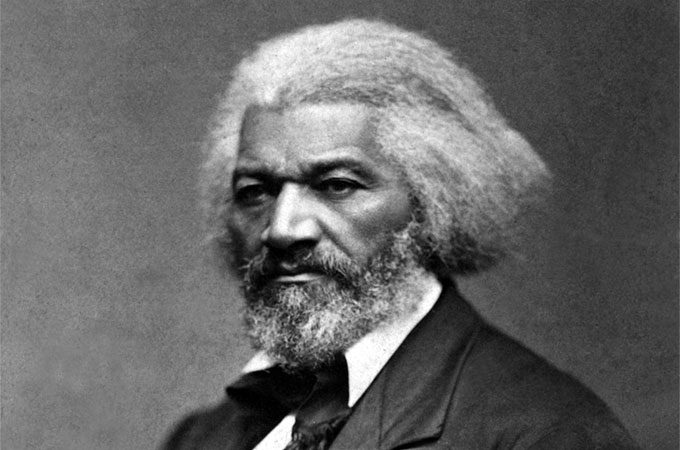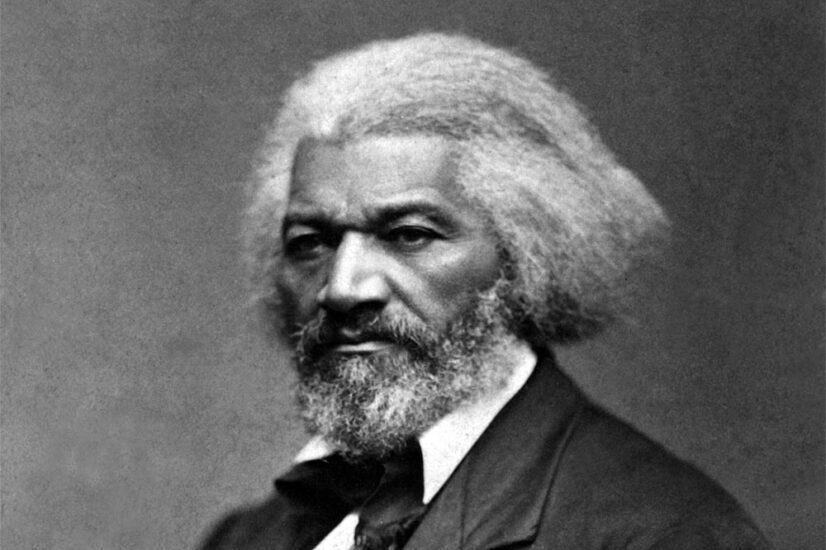February is Black History Month! Here are 3 black writers who shaped history.
Frederick Douglass (1817 or 1818 – 1895)

Photo: George Kendall Warren (Public Domain)
“I speak advisedly when I say this, – that killing a slave, or any colored person, in Talbot county, Maryland, is not treated as a crime, either by the courts or the community.”
Frederick Douglass, Narrative of the Life of Frederick Douglass, An American Slave
Frederick Douglass was a highly influential African-American writer whose contributions to United States history cannot be overstated. Douglass was born into slavery in Maryland – for this reason, it is unknown whether he was born in 1817 or 1818. Incredibly, Douglass learned to both read and write before successfully escaping from slavery in 1838.
Douglass, a highly intelligent individual as well as a gifted writer, was able to offer a perspective rarely documented in the mid-19th century: Douglass’ unique history allowed him to provide first-hand accounts describing the brutality of American slavery, life in the south, and how blacks were treated – free or not.
Douglass became a preacher and an active abolitionist alongside Harriet Tubman and Sojourner Truth. He published his historic autobiography, Narrative of the Life of Frederick Douglass, an American Slave, in 1845 – six years prior to the US Civil War.
Slaveholders at the time would unjustly argue that African-Americans did not possess the intellectual capacity to be free people in America. Douglass’ articulately written autobiography was an intelligent, powerful statement that clearly contradicted the slaveholders’ wholly unfounded claims.
To this day, Frederick Douglass’ is considered one of the most influential black authors of all time – and his autobiography continues to be a staple of high school and college literature.
Maya Angelou (1928 – 2014)

Photo: Columbia Pictures Corp. (Public Domain)
“Words mean more than what is set down on paper. It takes the human voice to infuse them with shades of deeper meaning.”
Maya Angelou, I Know Why the Caged Bird Sings
Maya Angelou was a multi-talented individual – author, screenwriter, dancer, and civil rights activist were just a few of the titles she held throughout her life. Angelou was originally born in Missouri, but had a tumultuous childhood. Due to her parent’s unstable marriage, she moved several times, living in both Arkansas and California.
At the young age of seven, Angelou was sexually assaulted by her mother’s boyfriend. This horrific crime and the events that followed led to Angelou becoming mute – not speaking for six years – into her teens. Throughout her childhood, Angelou often wrote poetry, kept a journal, or penned essays as a form of self-expression.
Angelou’s most famous work, I Know Why the Caged Bird Sings, is an autobiography of her early life that describes the struggles she overcame, from racial bigotry to sexual abuse. I Know Why the Caged Bird Sings continues to be seen as a testament to the power of pure resilience, personal strength, and self-empowerment.
Angelou’s numerous other works are just as notable, having gained her nominations for both Pulitzer and Tony Awards. In 1993, Angelou recited her poem “On the Pulse of Morning” at President Bill Clinton’s inauguration. Angelou’s works have left a lasting impression on the world, and her writing continues to inspire new generations of authors.
Alice Walker (1944 –)

Photo: Virginia DeBolt (CC BY-SA 2.0)
“For a long time, I thought I was ugly and disfigured. This made me shy and timid, and I often reacted to insults that were not intended.”
Alice Walker
Alice Walker is a novelist, poet, and social activist. Walker grew up in Georgia in a small, rural farming town. At the age of eight, she suffered an unfortunate accident – one of her brothers accidentally shot her in the eye with a BB gun. Unfortunately, Walker’s family did not have access to a vehicle and she was unable to receive immediate medical attention. As a result, she became permanently blinded in her right eye.
The accident caused Walker to develop serious self-esteem issues around her physical appearance, which led to her withdrawing socially. During this time, Walker took comfort in reading and writing. Six years later, she had graduated her class as valedictorian.
Walker became the first African-American woman to win a Pulitzer Prize for Fiction with her landmark 1982 novel The Color Purple – a coming-of-age story that continues to resonate with modern generations. Although the novel is seen as controversial to some due to the mature themes and subject matter it contains, The Color Purple is regarded as one of the most influential novels of all time. As a testament to this fact, the novel has been adapted into numerous other formats, including a 1985 film (directed by Steven Spielberg) as well as 2023 musical.



